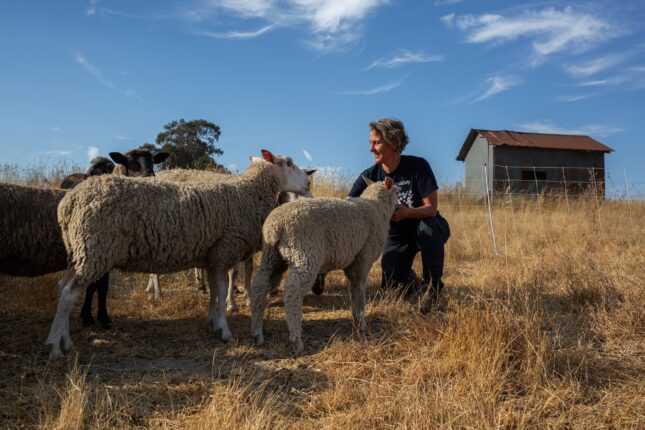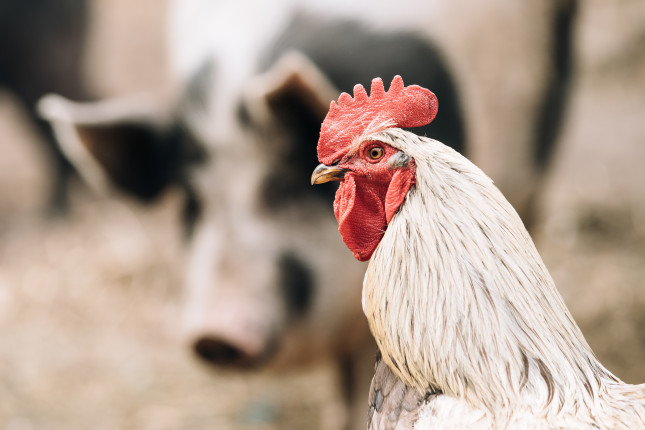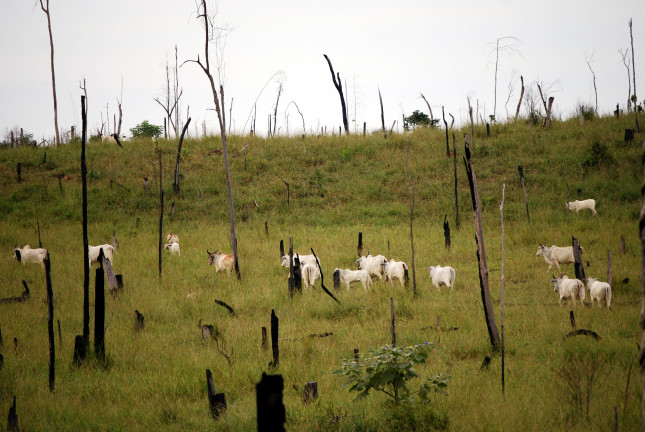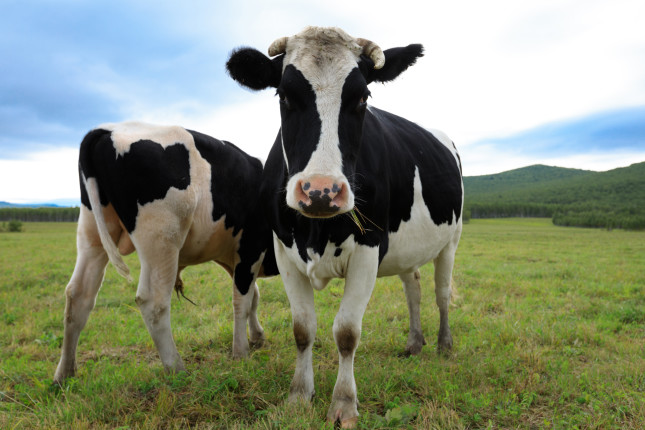-
Defueling California’s Wildfires with Sheep
›China Environment Forum // Cool Agriculture // Guest Contributor // August 10, 2023 // By Alastair BlandThe excited bleating of sheep crescendos as farmer Sarah Keiser approaches. “Hi babies,” she says as she steps over a deactivated electric fence and greets the eager flock. It is late July, it hasn’t rained for two months, and the hills around the town of Penngrove, in northern California, have turned a dull brown. -
ECSP Weekly Watch | July 17 – 21
›
A window into what we are reading at the Wilson Center’s Environmental Change and Security Program
Extreme Heat’s Toll on Pregnancy and Reproductive Health
Preliminary data collected by the World Meteorological Organization (WMO) shows that the first week of July 2023 was the hottest week on record. Recent global heatwaves also prompted a public health alert from the WMO concerning rising health risks.
-
ECSP Weekly Watch | July 3 – 7
›
A window into what we are reading at the Wilson Center’s Environmental Change and Security Program
In Conflict-Affected Somalia, Climate Change Adds to Migration Pressures
In the Somalian coastal town of Hobyo, thousands of residents—some of whom settled there to flee the country’s civil war—are starting to leave. Why? Their homes are being engulfed by sand.
-
Greening Eggs and Ham: Animal Feed and GHG Emissions in the United States and China
›“Save your kitchen scraps to feed the hens,” urged a poster for the victory gardens created on the home front in the Second World War. Feeding food scraps to backyard chickens and pigs turned this waste into a delicious source of human food. Pigs were especially prized in this effort as they would eat what most other animals considered inedible.
-
China’s Silent Greening
›China Environment Forum // Cool Agriculture // Guest Contributor // May 18, 2023 // By Rodrigo Bellezoni, Peng Ren & Zhao ZhongChina is Brazil’s main trading partner and accounts for over a quarter of all Brazilian exports. Yet two of the largest products in this trading relationship—beef and soybeans—are also crops that drive deforestation in the Amazon. Brazil’s deforestation rates declined substantially between 2004 and 2012, but forest clearage needed to raise cattle reversed the trend: The Amazon lost 10,476 square kilometers of rainforest in 2021, the highest total in the decade.
-
New Security Broadcast | The Link Between Food Insecurity and Conflict: A New Report from World Food Program USA
› To better understand the complex dynamics of global hunger and the urgent need for more collective action to address this humanitarian crisis, Chase Sova, Senior Director of Public Policy and Research at World Food Program USA, and his colleagues recently launched a new report, “Dangerously Hungry.” In today’s episode of New Security Broadcast, ECSP Program Coordinator and Communications Specialist, Abegail Anderson, speaks with Sova about the report’s analysis on the current state of global hunger and its devastating impacts on vulnerable populations.
To better understand the complex dynamics of global hunger and the urgent need for more collective action to address this humanitarian crisis, Chase Sova, Senior Director of Public Policy and Research at World Food Program USA, and his colleagues recently launched a new report, “Dangerously Hungry.” In today’s episode of New Security Broadcast, ECSP Program Coordinator and Communications Specialist, Abegail Anderson, speaks with Sova about the report’s analysis on the current state of global hunger and its devastating impacts on vulnerable populations. -
A Warmer, Wetter Climate Challenges a Chinese Eco-farm
›China Environment Forum // Cool Agriculture // Guest Contributor // April 14, 2023 // By Jiang MengnanIn recent years, a new narrative has appeared on Chinese social media: that a warmer and wetter climate in Northwest China will herald a return to the “golden age” of the Tang dynasty (618–907 AD).
Climate change will bring benefits, so the story goes, as historically China has flourished during warmer and wetter periods – conditions becoming common once more in the Northwest, a region extending from the province of Shaanxi to Xinjiang in the far west.
-
Milking the Dairy Industry for Lower Greenhouse Gas Emissions in China
›When Kevin Chen began his agricultural research 20 years ago, most dairy farms in China were small and family-owned. People of his generation did not grow up with milk deliveries or ice cream. Today, however, these farms have been replaced by massive agri-businesses raising tens of thousands of dairy cows, and dairy is a regular part of many people’s diets in China, thanks to rising incomes and years of governmental promotion of cheese, yogurt, and milk.
Showing posts from category agriculture.











